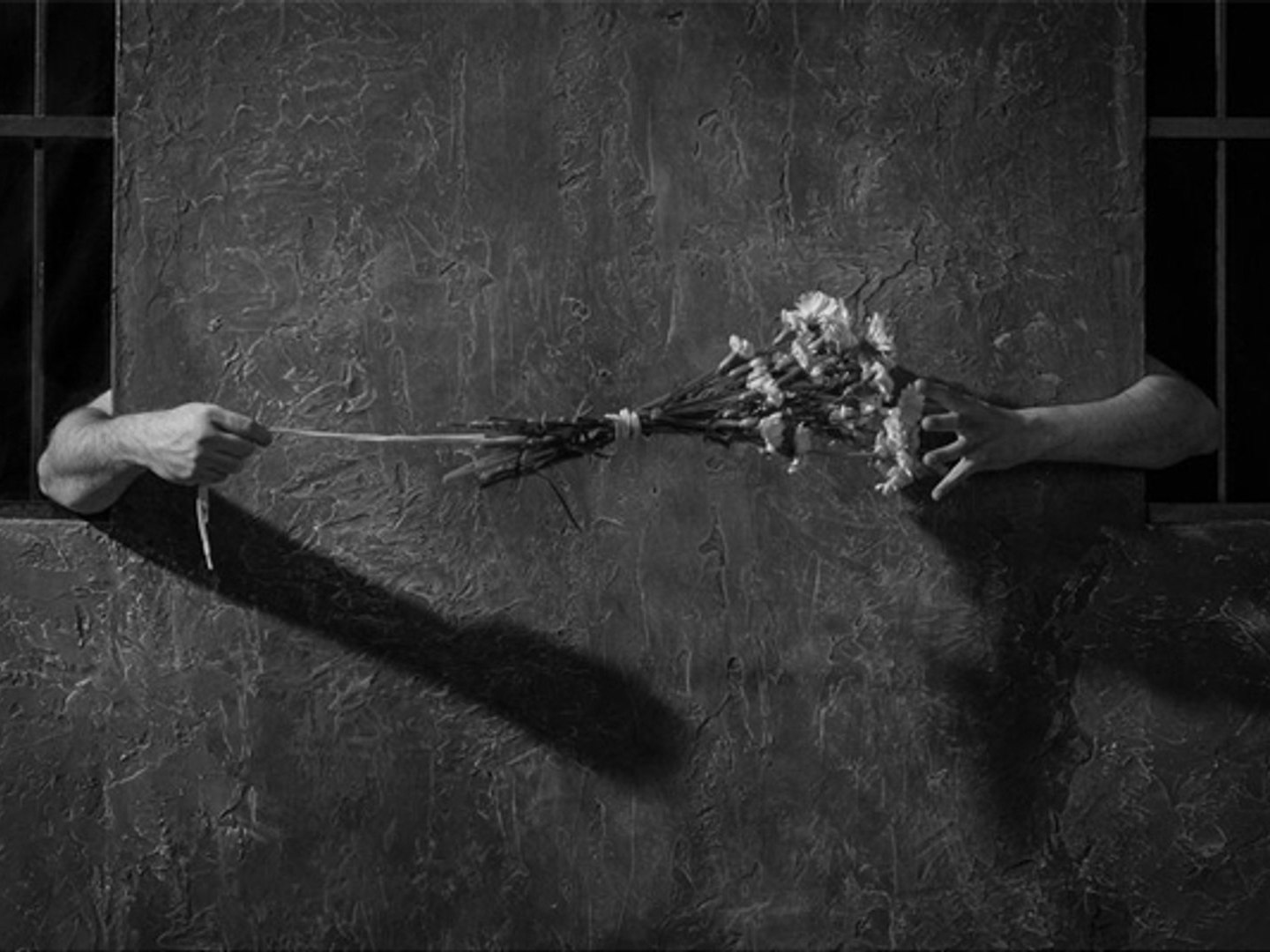
Jean Genet, enfant terrible of French literature, spent part of his life in captivity. In this voyeuristic visual poem, prisoners, locked in their cells, are also trapped in their homoerotic fantasies. The film was not authorised for public screenings until the mid-seventies. During the previous twenty-five years, it had been circulating mainly in the circles of erotic and pornographic film collectors and in the experimental film world. Jonas Mekas was arrested and beaten up by the American police for showing it.
EN
“There is a close relationship between flowers and convicts. The fragility and delicacy of the former are of the same nature as the brutal insensitivity of the latter. My excitement is the oscillation from one to the other.”
Jean Genet in The Thief’s Journal (1949)
“Un chant d’amour is the only film directed by the notorious multi-hyphenate, known as much for his begrimed, criminal past – he was an orphan raised in juvenile detention centers who grew up to become a petty thief and prostitute – as for the actual content of his novels, plays, essays, and poetry. This silent, black-and-white short from 1950 is remembered too often for the scandals and legal battles it incited and not enough for its artistry, for how much tenderness, fear, and sensuality it conveys without a single spoken word. It is awash in overt gay horniness, the likes of which, over the last century of film, have appeared as rarely as a ghost orchid. Yet the explicitness of its imagery has perhaps overwhelmed discussion of its supple construction. Though the film is steeped in symbolism (that eternally swinging flower bouquet), Genet’s film has no need to displace eroticism onto metaphorical objects: there’s a direct and literal sweating, heaving desperation with which the film’s principal men (two prisoners and one peeping guard) lust after one another, despite – or maybe because of – the cement walls that separate them.”
Michael Koresky1
- 1Michael Koresky, “Queer & Now & Then: 1950,” Film Comment, 24 April 2019.

